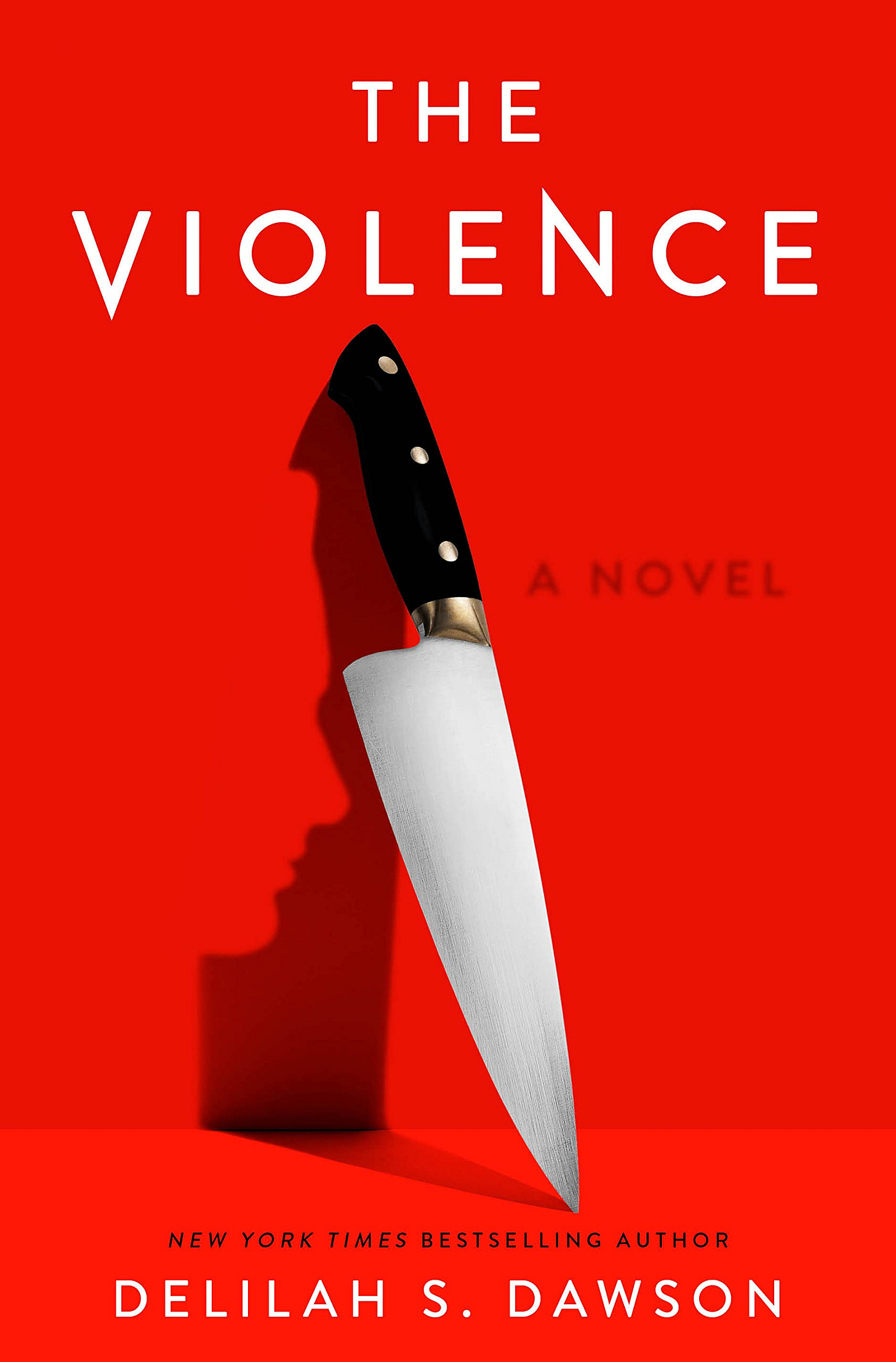📚 What to Read Next (No. 219): Unusual Threats
Happy Friday, readers!
Amazingly, the first quarter of 2022 is now behind us. I’m sitting at 26 books finished and a handful DNF-ed. My favorites so far:
Non-Fiction: The Warmth of Other Suns by Isabel Wilkerson. Read my review here:
Fiction: The Stand by Stephen King & The Great Believers by Rebecca Makkai. I couldn’t pick between ‘em; they’re sooo different and excellent in their own way. Read my Stand review here. And The Great Believers was reviewed just last week:
This week, I bring you a non-fiction book about libertarians and a novel about a terrifying and violent pandemic. The connecting thread is that both are fundamentally about very unusual threats to our survival.
Let’s do it.
The Violence by Delilah Dawson
Published: 2022 | Pages: 498
Perhaps it’s strange to enjoy a novel about a pandemic while we’re in the midst of a pandemic. Why even choose a book like that? I definitely understand the hesitation most people have with the subject matter.
But The Violence, in particular, is so outside the realm of possibility — taking the concept of a pandemic to the extreme — that it made our reality seem all the better.
That’s one of the things that I really enjoy about sci-fi, fantasy, and horror. When the world seems overwhelming, at least I’m not being chased down by an army of orcs; at least I’m not stuck on Mars with no way home; at least our pandemic is a decodable flu virus and not a violence-inducing illness that causes the infected to brutally kill the closest living thing.
(That last one is the basic plot of The Violence.)
Following three generations of women, all of whom have been preyed upon by abusers of some sort, Dawson says up front that she wrote this, in part, to work through her own upbringing with an abusive father.
The pandemic of violence, then, functions as a way for Chelsea, Patricia, and Ella to forge new identities and escape their old life. As the chapters roll on, the insanity of the story picks up and takes some wild, unexpected turns. It’s outlandish, for sure, but in a surprisingly fun and entertaining way. Dawson’s tone masterfully walks back and forth between dark and light.
Through the first few chapters, I couldn’t quite decide if the premise worked. But more and more, I found myself thinking about the book beyond just when I was reading it — one of the signs of a great book. So, the pages started turning quicker and quicker, and the more empathy and understanding I felt towards everyone’s crazy-ass situation.
It’s a thrilling, fast-paced, utterly unique book that put me in the shoes of women who’ve experienced domestic abuse.
FYI: There are plenty of trigger warnings, which Dawson spells out right at the front the book.
A Libertarian Walks Into a Bear: The Utopian Plot to Liberate an American Town (and Some Bears) by Matthew Hongoltz-Hetling
Published: 2020 | Pages: 255
The title and subtitle of this one tells you everything about the tone of this funny, sarcastic, insightful book.
Read this while keeping in mind that it’s a real story which involved years of reporting: A small town in New Hampshire unwittingly becomes home to a burgeoning libertarian movement. Said town starts to have trouble with local bears getting a little too comfortable with getting a little too close to backyards, homes, and residents. But the libertarians have dismantled and eschewed any sort of infrastructure, so there’s no clear path to getting rid of the bears.
A Libertarian Walks Into a Bear was our book club selection for January and was thoroughly enjoyed by all. Hongoltz-Hetling writes with both true empathy and a wickedly funny sense of humor (the jokes he makes at scholar Daniel Butt’s expense are truly laugh-out-loud).
The trick to writing about any fringe political movement is to both make it clear why people support it and use real-life anecdotes — rather than just using theory or debate stages — to show why it doesn’t catch on in the “real” world. Hongoltz-Hetling does that superbly here.
The narrative moves along at a steady clip, even when the author digs into the archives to discuss the history of libertarianism or the struggles that Americans have long had with bears. (It goes back to the earliest white settlements.) There are even highly entertaining ursine quotes to start each chapter.
Most unforgettable, though, are the characters. Firefighter John, Doughnut Lady (who refuses to have her real name in print), the fella who bought a historic church building and turned into a sort of strange libertarian spiritual center (in order to keep the tax-free status). They’re fanatic cliches in some ways, but the author never takes cheap shots at his subjects — a tall task, frankly.
This is one of those books that I’m happy to recommend to just about anyone. Definitely worth your time and attention.
Thanks so much for reading! I appreciate the time and inbox space.
-Jeremy





Just wanted to leave a note that I love the newsletter. I appreciate how you connect different books with a common element. My to-read is becoming too long! But I’ll take that over too short. Cheers.